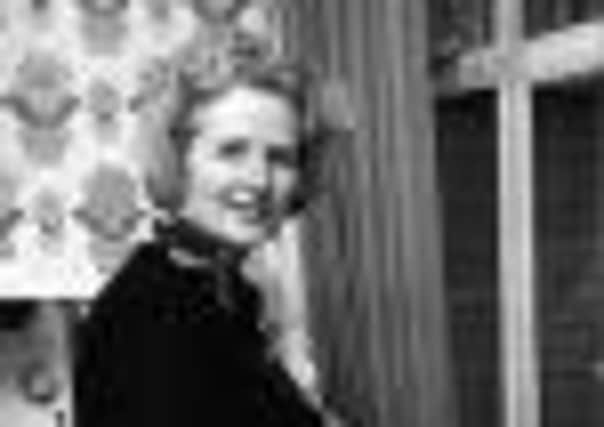The ironing lady: How Margaret Thatcher kept a close grip on the domestic budget


The former prime minister said she could provide her “own crockery” and “an excellent ironing board”, and she sent back unwanted bed linen following the maintenance works, noting “we use only one bedroom”.
Nearly three decades before the MPs’ expenses scandal rocked the Houses of Parliament, and claims for duck houses and moat cleaning were exposed, Baroness Thatcher’s hand-written notes reveal she was wary about how details could be interpreted by her political rivals.
Advertisement
Hide AdAdvertisement
Hide AdThe premier’s private notes to officials, written in blue felt-tip pen, were in response to the publication of maintenance costs at Downing Street and Whitehall after the Labour MP for Central Fife, William Hamilton, submitted a written question to the House of Commons.
Calculations on a memo dated 25 June 1979, from the now defunct government agency the Property Services Agency (PSA), showed the total cost of refurbishments at Number 10 came to £1,836.
On an attached breakdown, which contains a £19 ironing board and £123 for repolishing furniture, an aide to the prime minister wrote the figures of £464 to replace linen and pillows and £209 to replace crockery were “impossible to believe”.
Baroness Thatcher wrote: “So do I! I could use my own and my own crockery.”
She also noted: “Bearing in mind we use only one bedroom – can the rest go back into stock? I will pay for the ironing board.”
In a separate note on the same memo, she wrote: “I will pay for the ironing board and other things. We’ve sufficient linen for the one bedroom we use. The rest can go back into stock. MT.”
The disclosure of the information angered Number 10 officials, as a letter from one of Baroness Thatcher’s personal secretaries, Nick Sanders, reveals.
He wrote to David Edmonds at the Department of the Environment, of which the PSA was a part, to tell him no-one at Downing Street was consulted about the publication.
“This must not happen again,” he wrote.
Advertisement
Hide AdAdvertisement
Hide Ad“It is all too likely that such information will be picked up and used against the Prime Minister at Question Time.
“May we have your assurance that you will let us know before any similar information is published in the future?”
The aide then wrote to the prime minister to say “we sent an angry letter to the Department of the Environment”.
“I do not think information of this sort will be published without consultation for the next few months at least,” he wrote.
Mr Sanders went on to inform the prime minister that the MP asked for more “detailed breakdowns”.
“I’m afraid that the damage is done in terms of the publication of the total figure,” he wrote.
“We will seek to limit it by keeping the answer to Mr Hamilton’s second question as short as possible. Would you like me also to pass on to the officials concerned your wish that all expenditure on the flat should be as economical as possible and notified to us in advance?”
She replied: “Yes – I should at least like to be given the estimated cost of the proposed charge. I have an excellent ironing board which is not in use at home.”
Advertisement
Hide AdAdvertisement
Hide AdElsewhere in the files, the prime minister showed her commitment to economising as she questioned the price of a flat the Welsh Secretary had asked for.
Nicholas Edwards wrote a letter to the premier in which he claimed Cardiff officials had to “camp in their own offices”.
He wrote: “I am told that the provision of a flatlet would cost up to £20,000, and a bathroom alone £6,000.”
Mrs Thatcher wrote in a separate memo: “It is a good idea but not at that price. I just don’t believe that a one-room + bathroom + kitchenette can cost £26,000. Get some other estimates.”
Soon enough, a note from John Craig, a private secretary to the Welsh Secretary, to a Number 10 private secretary, Mike Pattison, said the estimated cost had come down to £12,000.
A hand-written note from Mr Pattison asked the prime minister if it could “now go ahead”, and she wrote “Yes MT”.
Papers released last year under the same 30-year rule showed Baroness Thatcher warned there was a “grave risk” of a public scandal over MPs’ expenses
The minutes of a Cabinet meeting held on 14 February 1980 noted: “There was some reason to suspect abuse of the system by certain MPs. This gave rise to a grave risk of serious public scandal. If a serious abuse were uncovered, it might be necessary to consider prosecuting the MP concerned.”